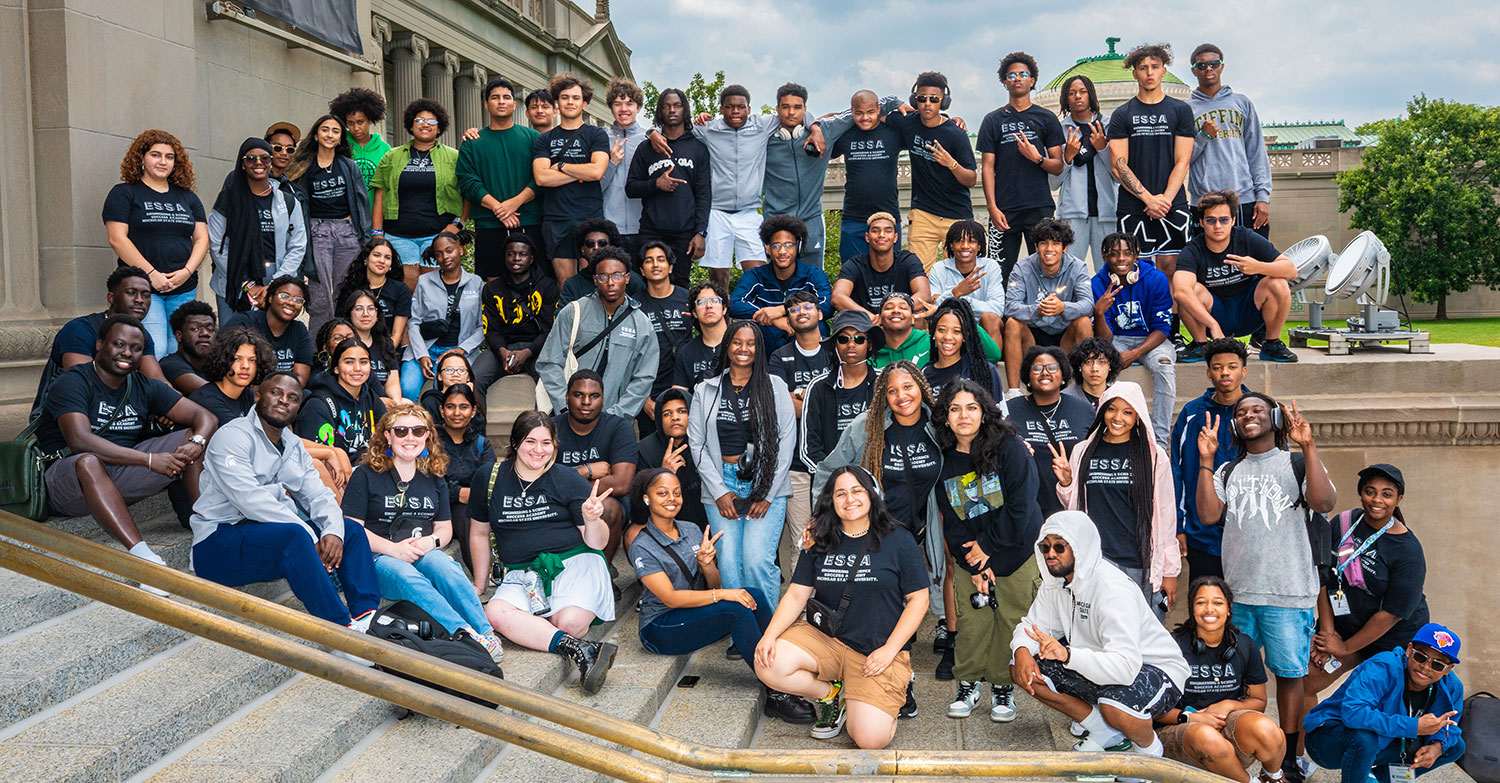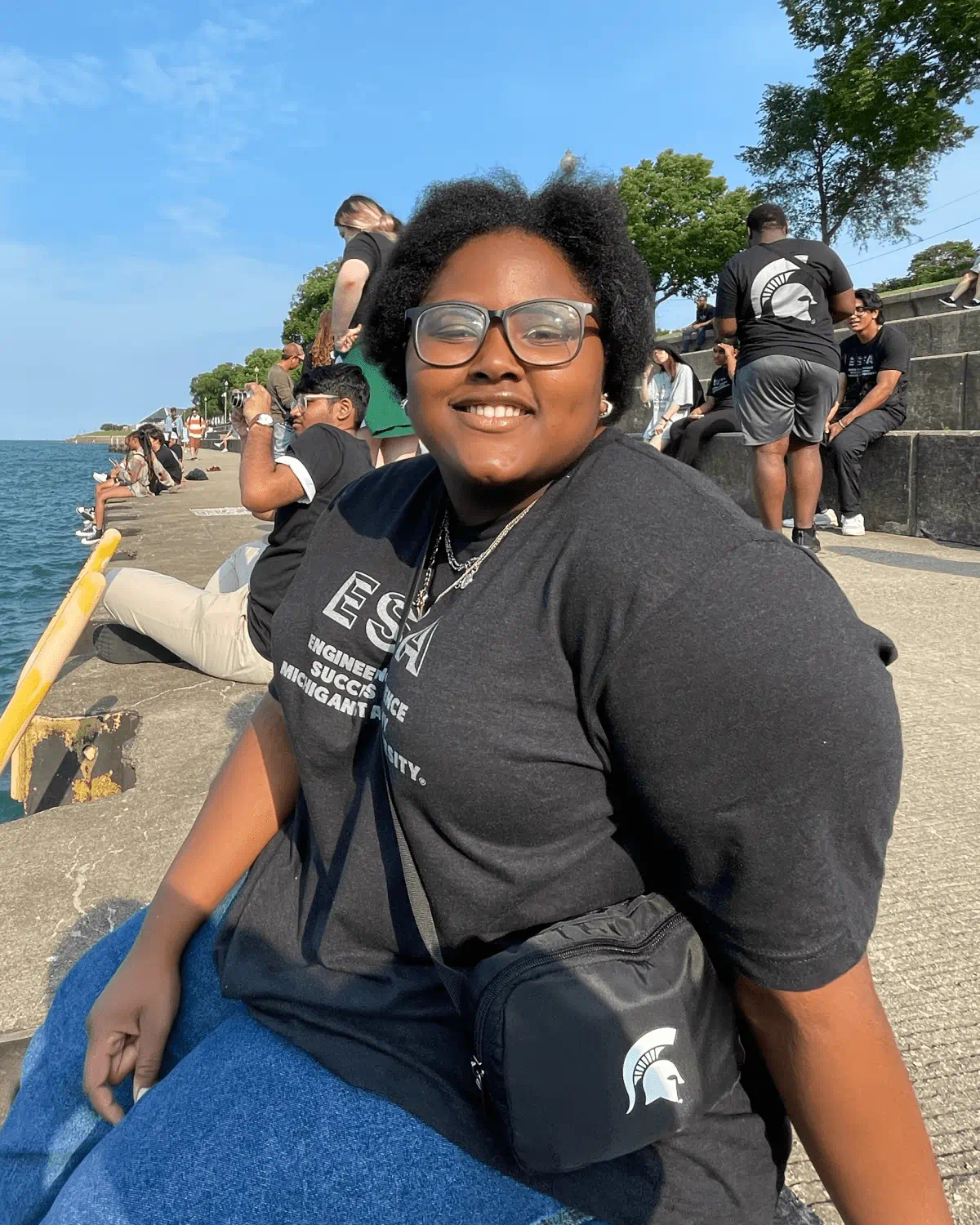Every admitted first-year engineering student at Michigan State University takes a math placement test. Data show that the result of that test is the single biggest indicator of the student’s ability to graduate with an engineering degree. To improve outcomes for students who need extra support in math, the College of Engineering offers the Engineering and Science Success Academy program each year.
Setting up for success
ESSA is a four-week residential, academic intensive program designed to acclimate incoming first-year engineering students to both the academic and environmental aspects of post-secondary education. ESSA participants attend daily preparatory math and other STEM-based courses, in addition to a variety of professional development and supplemental academic enrichment activities. Participants also have an opportunity to retake their MSU math placement exam, with the intent of earning a higher score and placement into a higher-level math course.
Ciera Trice, director of the ESSA program, explained, “So many ESSA students are first-generation college students or come from disadvantaged or low socioeconomic status backgrounds. The main goal is to help retain these underrepresented students so they can successfully earn degrees in engineering.”
The first ESSA program launched in 2007 with support from the Michigan Louis Stokes Alliance for Minority Participation (MI-LSAM) fund and the 3M Foundation. In 2012, based on the consistent success of the program, ESSA became institutionally funded. Soon after, corporate sponsors such as Marathon joined the effort with funding for scholarships, interaction with the cohorts and hiring program participants for internships.
Data tell the story
ESSA’s success is well documented. Data from 2007 to 2018 indicate that out of 384 students who participated, 67% of them graduated with a degree. In 2024, 73% of the 45 students in the program increased their math placement scores by an average of 85%.
First-year computer science major and 2024 ESSA cohort member Sara Dallalah said she was surprised by the improvement. “I originally scored a 15 on my placement exam. After joining ESSA, I scored a 21.”
Support and community: a winning combo
The key to success in this program lies in the wholistic approach.
“We know these students may face obstacles that aren't necessarily conducive to pursuing a STEM degree or being successful in college. They need different supports to overcome them,” said Trice. “We want to make sure students can get the help and support they need when they need it.”
Each cohort builds community through required study sessions, regular check-ins with advisors, living together in the residence halls, eating in the dining halls, field trips and social events. And this community lasts long after the summer program is finished.
“The people in my cohort shared the mindset of doing better,” Dallalah explained. “We encouraged each other. We would study in the basement and then help each other with the homework. It's those same people that I studied with in ESSA that I study with now.“
When looking at the community, Trice describes it in familial terms. “Their ESSA community is their family here at MSU.”
All in the family
Many alumni of the program remain involved in supporting the ESSA community. They help raise scholarship money, invite participants on tours of their facilities and even mentor ESSA students in internship settings.
“I had a student who was in California completing an internship and wearing some ESSA apparel, and saw another person there also wearing ESSA apparel,” Trice explained. “From that moment, the alum mentored the undergraduate student and just made sure they were doing okay, checked in and showed them the ropes. That was really impactful.”
Maurice Traylor, director of Multicultural Initiatives for the College of Engineering, said, “I'm still in awe year to year by these groups of students. They blow me away with their willingness to, frankly, be vulnerable and allow themselves to step outside of their comfort zones, knowing that it's only going to benefit them on the back end.”
Dallalah said that after graduation she hopes to apply her newly acquired engineering skills to innovate and make an impact. She went on to add, “My college experience would have been so different if I hadn’t done ESSA. I just love college so much more because of the program.”
This story originally appeared on the College of Engineering.

